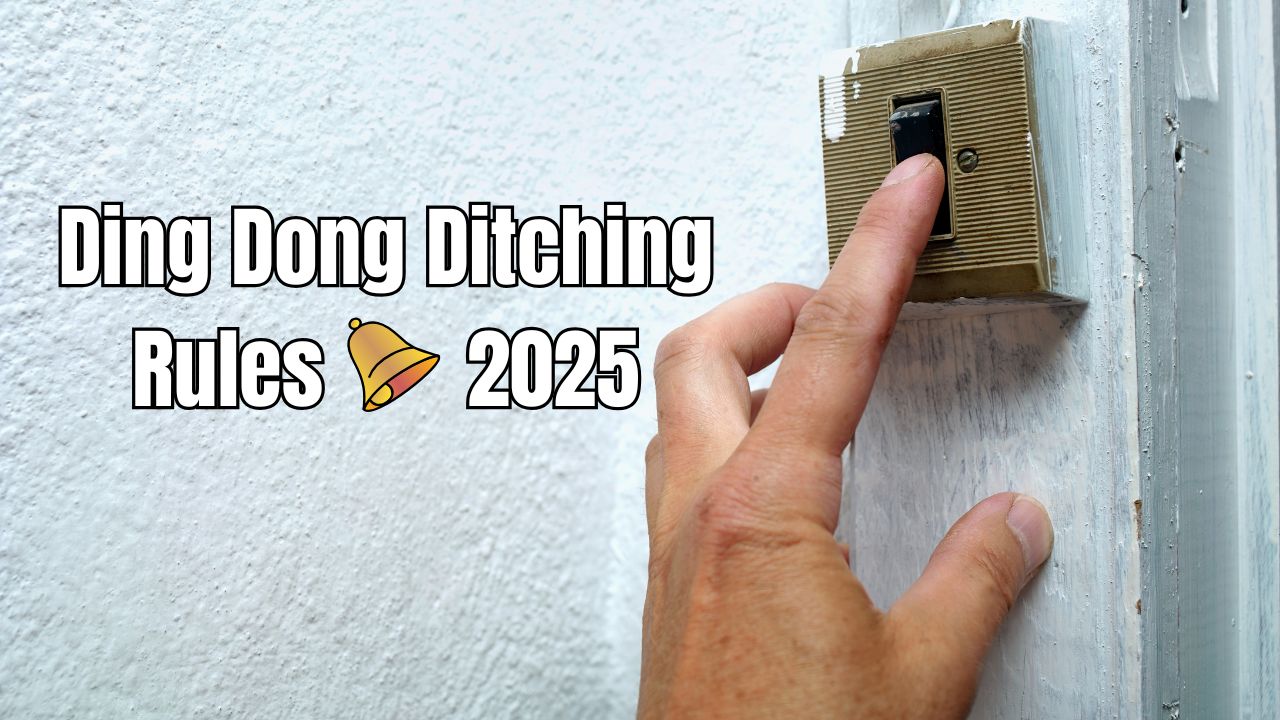Hartford, Connecticut – Ding dong ditching — the prank of ringing someone’s doorbell and running away before they can answer — may seem harmless to kids and teenagers looking for a laugh. But in Connecticut, this prank can cross into real legal trouble depending on how it’s carried out.
So, is ding dong ditching actually illegal in Connecticut? The short answer: There’s no specific law banning it, but it can easily fall under other criminal offenses.
What Is Ding Dong Ditching?
Ding dong ditching has been around for decades as a mischievous prank. Typically, someone runs up to a door, rings the bell or knocks loudly, and then dashes away while the resident comes to investigate.
While pranksters might view it as innocent fun, homeowners often see it differently. The prank can feel like harassment, intimidation, or even a safety concern — especially if it happens at night or repeatedly. Elderly residents or families with children may feel particularly threatened by unexpected disturbances at their door.
No Direct Law Against Ding Dong Ditching
Connecticut law does not include a statute that explicitly states “ding dong ditching is illegal.” However, that doesn’t mean pranksters are in the clear. Depending on the situation, this behavior can fall under several existing laws that carry consequences ranging from warnings to fines or even arrest.
Laws That Could Apply in Connecticut
Here are the most common ways ding dong ditching could be treated under Connecticut law:
1. Trespassing
Entering someone’s private property without permission — even for a quick second to ring a doorbell — can qualify as criminal trespass.
- If a property has a “No Trespassing” sign or the prankster has previously been told to stay away, the chances of being charged increase.
- Trespassing in Connecticut can be charged as a misdemeanor, with penalties including fines or possible jail time depending on the severity.
2. Harassment or Breach of Peace
According to mylolowcountry, If ding dong ditching is done repeatedly or with the intent to annoy, scare, or alarm, it can be classified as harassment or a breach of peace.
- Connecticut law defines harassment as unwanted behavior that causes distress or intimidation.
- Breach of peace includes acts that disturb others’ sense of safety or quiet enjoyment of their home.
Both are criminal offenses and can lead to police involvement, citations, or arrests.
3. Disturbing the Peace
Late-night pranks that wake up families, frighten residents, or create a commotion may fall under disturbing the peace, a minor offense but still one taken seriously by law enforcement.
This is especially true in residential neighborhoods where repeated disturbances can quickly escalate into formal complaints.
Can You Get in Trouble for Ding Dong Ditching in Connecticut?
Yes — especially if someone calls the police. While a single prank might result in nothing more than a warning, repeat offenses or pranks that cause fear can lead to legal consequences.
Police may:
- Issue warnings or file incident reports.
- Contact parents or schools if minors are involved.
- Pursue charges such as trespassing, harassment, or breach of peace.
Parents can also be held financially responsible for any property damage or legal issues caused by their child’s actions.
Read Also: Is Ding Dong Ditch Illegal in Utah? Here’s What State Law Says
What Parents and Teens Should Keep in Mind
Many teens don’t realize that what seems like harmless fun can be viewed very differently by neighbors. Here are some important reminders:
- Respect privacy and property: Not everyone finds these pranks funny.
- Understand the risks: Even if no law bans ding dong ditching by name, related charges are serious.
- Teach responsibility: Parents should explain that pranks causing fear, inconvenience, or danger can cross the line into criminal behavior.
Bottom Line
While ding dong ditching isn’t directly outlawed in Connecticut, it can still lead to charges under laws such as trespassing, harassment, or breach of peace. A quick laugh isn’t worth the risk of police involvement, fines, or a criminal record.
What do you think — should ding dong ditching be treated as harmless fun, or is it right that the law takes it seriously? Share your thoughts in the comments at ibwhsmag.com.


 by
by 
